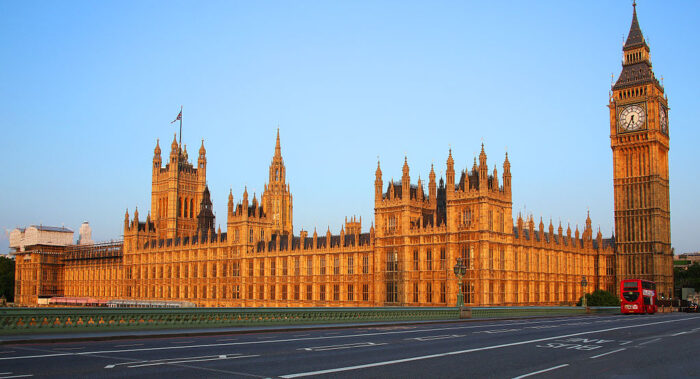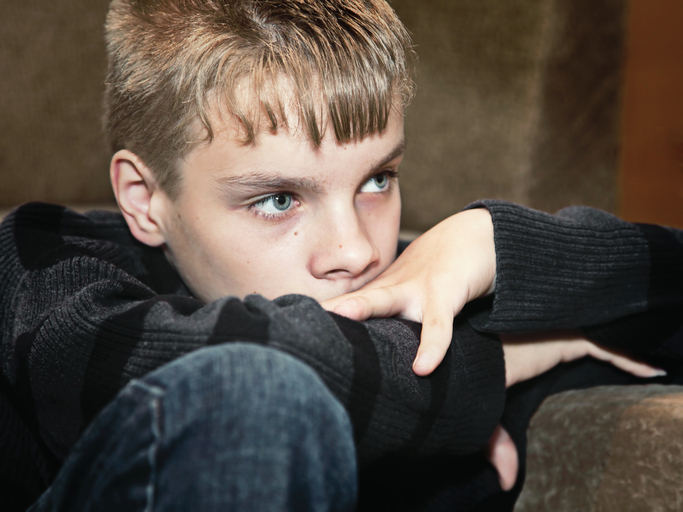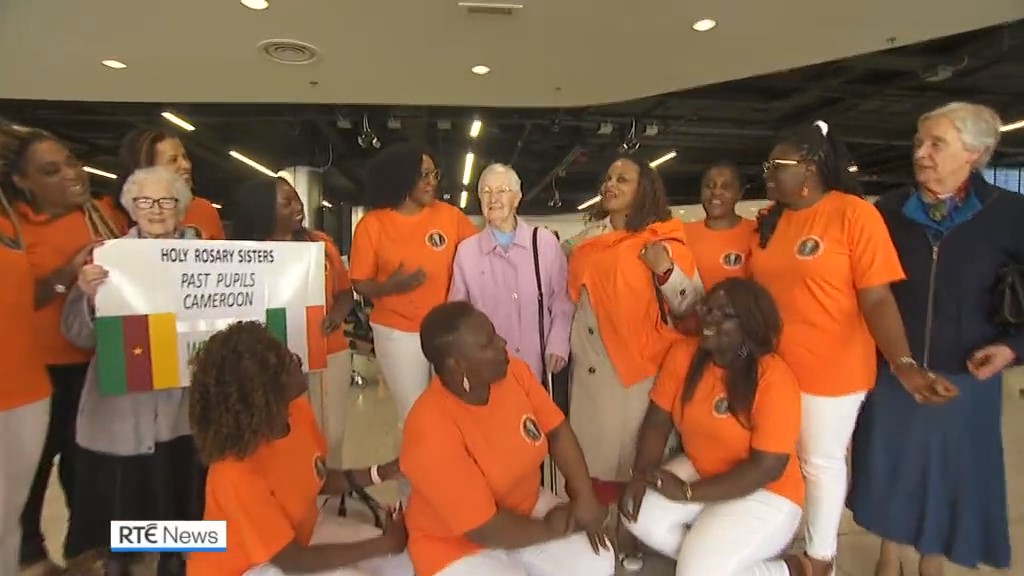
Deaths outnumbered births in China last year by almost 1.5m, while the number of marriages has almost halved since 2016.
The country’s just released population figures for 2024 show 9.54 million births and 10.93 million deaths, a decrease of 1.39 million.
The 530,000 additional births in 2024 births in 2023 were due to a 12% increase in marriages in 2023 after the end of the three-year Zero-Covid policy, but it is not arrested the sharp decline in the marriage rate.
But since then, marriages fell 16.6% in the first three quarters of 2024, including a 25.3% drop in the third quarter. The full year is projected to see a fall of 18.8%, meaning births will plummet in 2025, with little over 7 million expected.
There was an increase in the number of births in China by 5.8% to 9.54 million in 2024.
This put the total fertility rate at 1.10 children per woman about half what is needed for a population to simply replace itself.

The submission of Irish female religious to the recent Synod in Rome backs up claims by the Association of Catholic Priests of an unfair portrayal of nuns in the Irish media.
Speaking to The Irish Catholic, Cloyne priest Fr Tim Hazelwood, said that religious sisters have become the “fall-guy” for all of the ills in society during a particular period in history. “All of us have worked in parishes where sisters have worked and know the reality and we’re upset at the way they’re being portrayed,” he said.
Irish nuns themselves have said the same thing.
In their submission to Rome, the nuns said: “Today, religious life is given a lot of bad press, with a particular focus on the past, and as women religious many of us feel hurt and challenged in a very deep way. Most media reporting seems happy to use women religious as scapegoats for Church and society.”
They added: “There is a sense of being silenced, but silence is seen as condoning the accusations [referring to the abuse reports] and giving the impression that ‘“we’re all guilty.”’
The report adds: “What can be done? It is difficult for women religious to respond, as we believe “any religious who speaks up would be shut down.”

The distinctive feature of Catholic education is forming students “in the image and likeness of God”, according to a newly published document.
Speaking to The Irish Catholic, the National Director for Catechetics, Dr Alex O’Hara said that ‘Wellbeing and the Catholic School’ reaffirms the view that schools should be concerned with “the holistic education of the whole person in the image and likeness of God”.
“We’re giving guidance on how you might structure the 400 hours of wellbeing that students have to do at junior cycle and ensuring that the mandatory two hours of religious education in primary and in post-primary a week are not further eroded.
The document also touches on some of the more sensitive issues that have emerged among young people, namely anxiety and suicide, and how to respond to them.
“It also acknowledges the challenges, particularly for young people in terms of anxiety and it’s responding to that,” he said.
“It’s worth remembering that significant research in Ireland and other countries has demonstrated that religious belief and practise are positively associated with good mental health and reduced depression and other aspects of wellbeing.”

The new Programme for Government (PFG) contains a list of major historical events that will be commemorated over the next five years, but no mention is made of one of the most important events of the 19th century in both Ireland and Britain, namely Catholic Emancipation which took place in 1829.
The PFG says the Government “will remember and reflect on many significant historical events which have been important to the legacy of the State and left a lasting impact on Irish culture.”
Among the events to be remembered are the 250th anniversary of the U.S. Declaration of Independence, and the anniversary of the birth of Hanna Sheehy-Skeffington and the death of Constance Markievicz.
Later this year, it will also remember the 250th anniversary of the birth of Daniel O’Connell, who won Catholic Emancipation. The PFG says it will recall “the bicentenaries of some of the most pivotal moments in his career and develop an educational schools’ pack for use across the island highlighting how Irish identity was, and remains a European identity, while showcasing O’Connell’s contribution to intellectual and political thought on a global scale.”
But no explicit mention is made of Catholic Emancipation which is considered his greatest achievement earning him the title of ‘The Liberator’. It is not clear how big a role this achievement, which removed most of the remaining the Penal Laws, including a requirement by MPs to take an anti-Catholic oath, will play in the commemoration, or whether anything separate will be done in 2029.
Commenting on the matter on ‘X’, the head of the Catholic Education Partnership, Alan Hynes, said: “No mention of the 200th anniversary of Catholic Emancipation, a measure secured largely by the Irish to the benefit of Catholics not only here but in England, Wales and Scotland. It was one of the most significant mass-democratic civil rights movements in history at that time.”
Responding, the former Irish ambassador to Washington said: “I agree that is a surprising lapse. Catholic Emancipation was not just an Irish gain. It was a breakthrough for Catholics in Britain too and the first great measure of British parliamentary reform of the 19th century. I dare say it will be marked by English Catholics”.

Children in large families, in lone parent households, and in households where someone has a disability face a higher risk of income poverty and deprivation, according to a new study by the ESRI.
The report compares child poverty and related factors and policy measures in Ireland and Northern Ireland.
The report uses two measures of poverty: income poverty, which means having a household disposable income that is less than 60 per cent of median income; and, material deprivation, which occurs when families are unable to afford at least two of five basic essentials like paying their bills on time or keeping their home warm.
Author of the report, Helen Russell, of the ESRI said an “unacceptable number” of children are experiencing poverty and reducing this “must be a priority” for governments on both sides of the border.
More than 40pc of births now take place outside marriage.

More Catholic priests and religious were kidnapped in 2024 than in 2023 showing the continued danger facing the Church’s ministers, according to data collected by the pontifical foundation Aid to the Church in Need (ACN).
In total, ACN registered 121 cases impacting priests and religious, including 13 murders, 37 kidnappings and 71 held under arrest. Ten of these incidents involved women, eight of whom were kidnapped and two arrested.
Michael Kelly, Director of Public Affairs for ACN, Ireland – which works to support nearly 6,000 vulnerable communities in 140 countries – described the figures as a “sobering reminder of the tremendous sacrifices and risks that so many priests and religious make to minister to those in need worldwide.
“Wherever you go in the world, you will find saintly and heroic priests, religious sisters and missionaries who live alongside vulnerable communities without fear for their own safety,” Mr Kelly said.

The Inter-American Court of Human Rights has just rejected an attempt to establish a “right to abortion” throughout Latin America.
The ruling creates a legal precedent that will help pro-life groups defend unborn life, from conception, in the 25 member countries, and the region at large.
The abortion lobby was hoping that the Court’s ruling would pave the way for abortion on demand in the same way that the U.S. Supreme Court’s ruling in Roe v. Wade opened the path to unrestricted abortion.

Nuns are “terrified” to speak up and defend themselves against “unfair and unbalanced” portrayals of them in film and media, according to the Association of Catholic Priests.
Fr Tony Flannery, the Redemptorist priest who founded the association, said that most nuns in Ireland today “are now too old and too fearful” to go public and challenge negative portrayals of them.
“I don’t blame them in the present climate in this country,” he told the Irish Independent.
The ACP said it had decided to speak out “in protest at the way nuns are being portrayed”.
In a statement, the group said: “Society judges the past harshly while media outlets seek to outdo each other in condemnation.
“Religious sisters are vilified; a harsh hard-faced nun, dressed in traditional habit, has become the standard media image of all nuns. It is false and unjust.”
Image shows Cameroonian women who travelled to Dublin to thank Irish nuns who taught them

More people applied to change the legal-designation of their sex in 2023 than any year since gender self-ID first came into effect a decade ago, according to figures just obtained by the Irish Independent. When enacted, it was one of the most radical laws of its kind in the world and is still more radical than most Western countries because it assigns a ‘new’ sex based purely on self-identification, even if it be entirely different from one’s biological sex.
Under the 2015 law, anyone over the age of 18 can apply for a “Gender Recognition Certificate” to change their legal identity from male to female or vice-versa.
No other type of “preferred” gender is currently possible. The change can be made without any accompanying surgical or hormonal interventions. When a certificate is granted, the person can apply for a new birth cert, passport and driving licence that reflects their ‘new sex’.
Young people aged 16 or 17 can also apply to change the legal identity of their sex, if they get a court order.
In 2023, the department received 354 applications under the Gender Recognition Act. Four of these were from people aged 16 or 17. Under 18s must gain permission from their parents to apply under the law.
This surpassed the previous record of 319 applications in 2022 and 195 in 2021.
There were 341 applications granted in 2023, including three for people under the age of 18. Gender recognition certificates granted in 2023 may have been applied for in previous years.

Priests across the country have voiced their delight with the “massive” numbers who attended Christmas Masses. Many clergy were “impressed” and “encouraged” by the turnout, with others noting it was the best they have seen in years.
Fr Andrew O’Sullivan PP of Rathgar and Rathmines in Dublin said there were “full churches” for Christmas eve and Christmas day and that there was “a wonderful atmosphere and a lot of good will. Our numbers were the best they have been in many years”.
Based in Ennis, Co. Clare, Fr Tom Ryan said: “Our numbers were exceptional at all our Masses. We celebrated 18 Masses in the parish of Ennis on Christmas Eve and Christmas day – extremely good numbers at all of them.
“It was very encouraging. I wouldn’t say numbers have recovered since Covid, but we experienced full churches and happy people so overall it was a positive experience.”
Fr Dermot Ryan, the Administrator of St Mary’s Cathedral in Kilkenny, told The Irish Catholic the cathedral was “packed to capacity” for all their Christmas Masses.